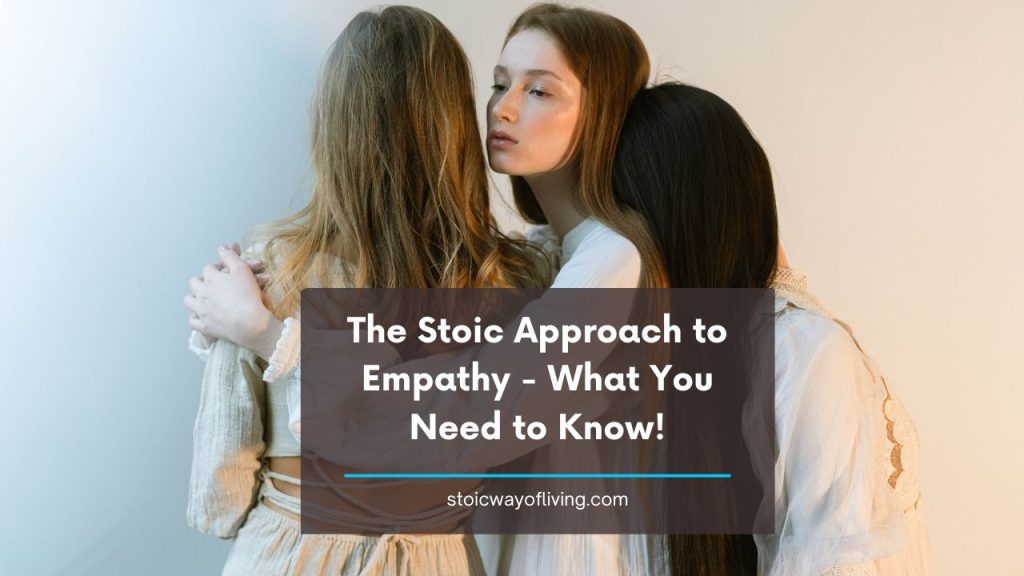Building stronger relationships through stoicism, an ancient philosophy, fosters a healthier, more harmonious life.
Relationships often face challenges that test both partners’ strength and resilience. Stoicism offers timeless wisdom that can transform how we approach these conflicts.
This article explores how Stoicism can help build stronger connections by managing emotions, practicing virtues, and implementing practical strategies.
Stoicism for Stronger Relationships

Stoicism, founded in the early 3rd century BC by Zeno of Citium, was further developed by philosophers like Seneca, Epictetus, and Marcus Aurelius.
This philosophy emphasizes distinguishing between what we can control and what we cannot, focusing on four cardinal virtues: wisdom, courage, justice, and temperance.
These principles guide Stoics in leading a virtuous and fulfilling life, providing a robust framework for navigating personal and interpersonal challenges.
Stoicism is often misunderstood as promoting emotional indifference; however, it teaches the regulation of emotions, not their suppression.
The aim is to maintain a composed, rational mindset even in challenging situations, which allows for deeper and more meaningful connections.
The Role of Emotions in Relationships
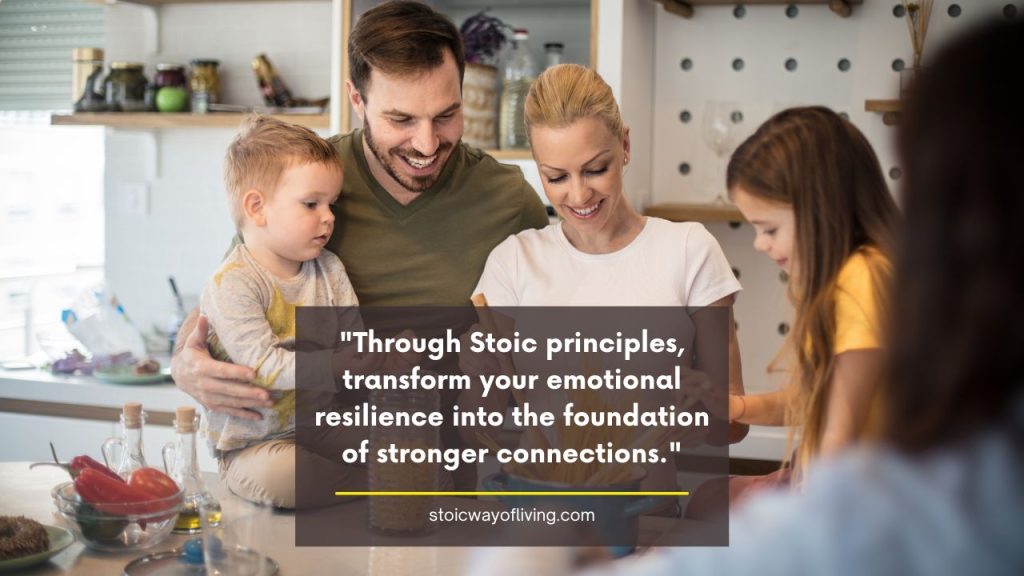
Emotions play a crucial role in relationships, often dictating how we react to various situations.
Common emotional challenges include jealousy, anger, and resentment, eroding trust and intimacy.
Stoicism teaches that while we cannot control external events or the actions of others, we can control our reactions to them.
By practicing techniques such as negative visualization, where we imagine potential setbacks, and mindfulness, which keeps us present and aware, we can manage our emotions better.
This allows us to respond to relationship challenges calmly and constructively rather than being driven by impulsive, emotional reactions.
Practicing Stoic Virtues in Relationships
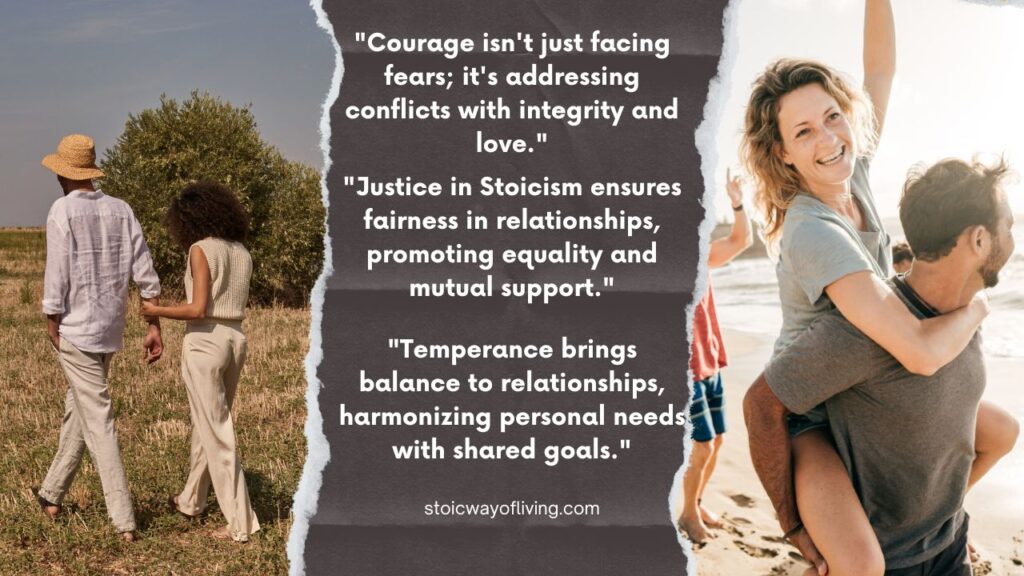
Practicing Stoic virtues can profoundly impact our relationships. Wisdom involves understanding and empathizing with our partner’s perspective, leading to more effective communication.
Courage enables us to bravely address conflicts and difficult conversations, standing up for our values while maintaining integrity.
Justice ensures we treat our partners fairly and respectfully, promoting equality and mutual support.
Temperance helps us practice self-control, avoid overindulgence, and balance personal needs with those of the relationship.
Embodying these virtues creates a foundation of trust, respect, and harmony in our relationships.
Practical Stoic Strategies for Stronger Relationships
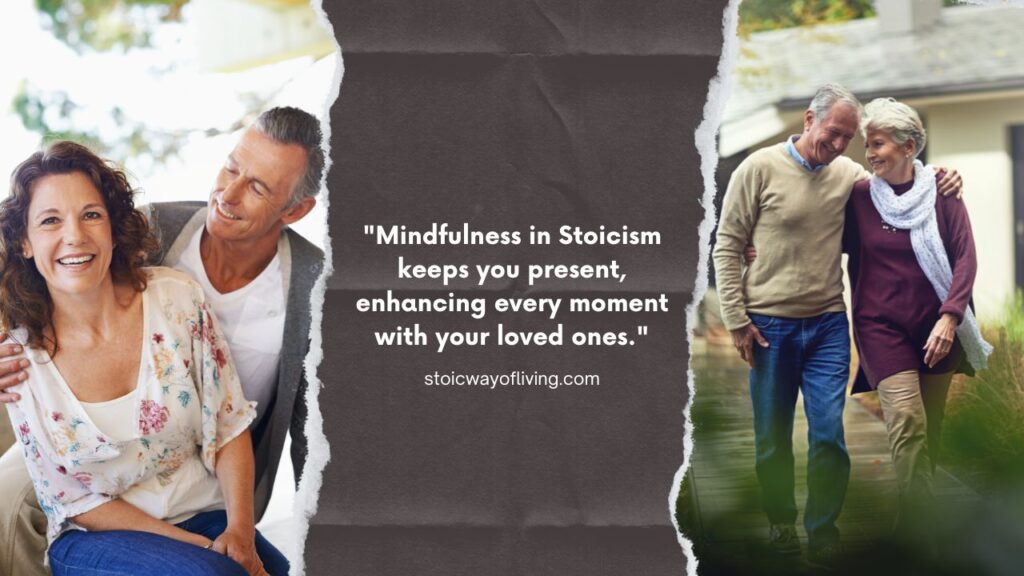
Several practical Stoic strategies can strengthen relationships.
- Reflective journaling involves daily reflections on our interactions and emotions, helping us learn from experiences and improve future behavior.
- Mindfulness and meditation keep us present and aware, reducing impulsive reactions and fostering a sense of calmness.
- Setting healthy boundaries involves understanding and communicating our limits while respecting our partners’ boundaries.
These strategies encourage personal growth and a deeper connection with our partners as we become more mindful, self-aware, and respectful.
Overcoming Challenges with Stoicism
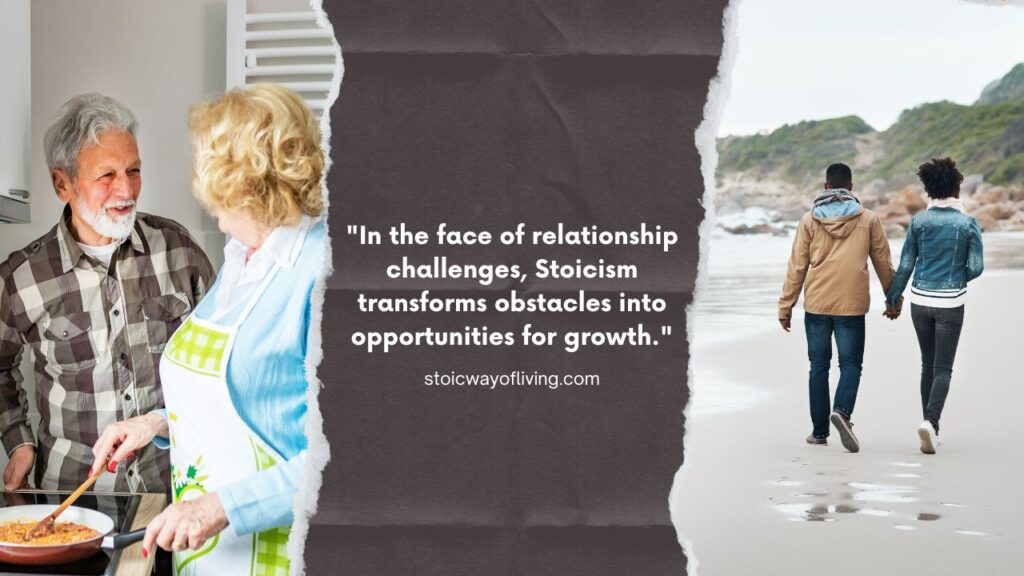
Stoicism provides valuable tools for overcoming relationship challenges.
When dealing with conflict, a calm and rational mindset helps us approach disagreements constructively, seeking common ground and solutions rather than escalating tensions.
Building resilience involves accepting and learning from setbacks, maintaining perspective, and staying committed to the relationship.
By applying Stoic principles, we can navigate difficulties with grace and fortitude, transforming challenges into opportunities for growth and strengthening our bond with our partners.
See Also: The Stoic Approach to Empathy – What You Need to Know!
Conclusion
Stoicism offers profound insights and practical strategies for building stronger relationships.
By understanding and managing our emotions, practicing virtues like wisdom, courage, justice, and temperance, and implementing reflective and mindful practices, we can transform how we relate to others.
If you seek further insights and strategies to build and maintain a happy, healthy relationship, consider checking out 5 Keys to Building Lifelong Healthy Relationships by Ariane Turpin. This book offers valuable advice and practical tips for anyone looking to improve their new, long-term, or future relationships. Check it out on Amazon!

